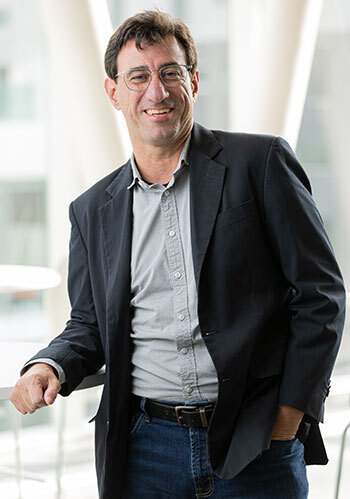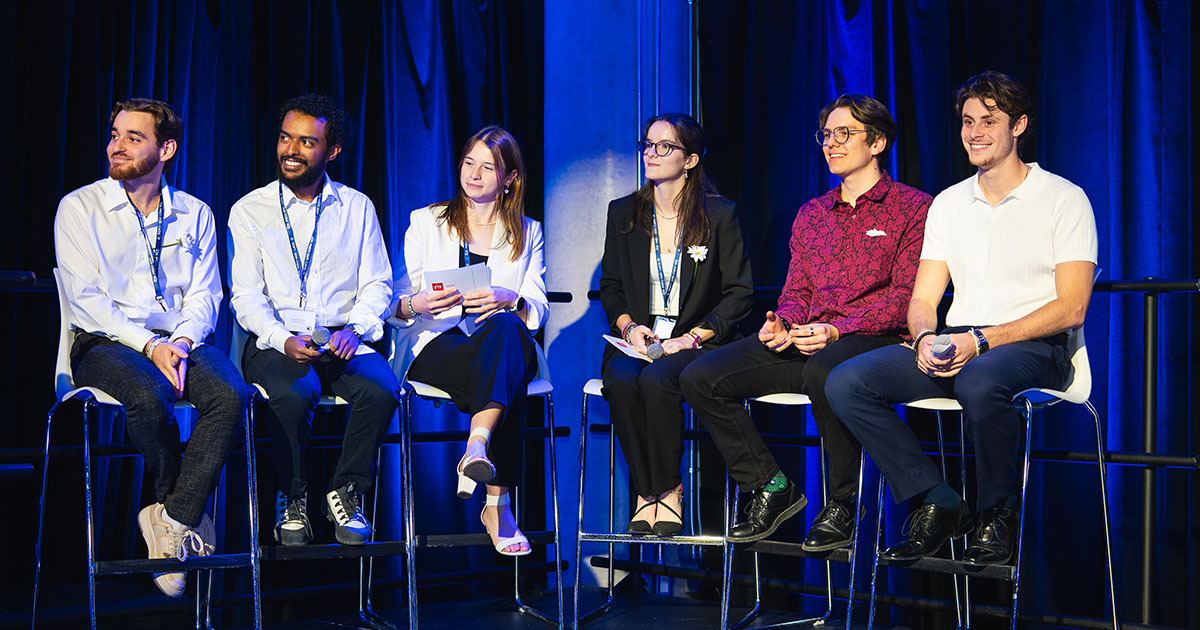Video Games: Works of Art in Motion

In Search of Light Paths – Computer Generated Images
Video games: those two words make you dream. However, the reality of this $200 billion industry is that it can sometimes turn into a nightmare for teams working behind their screens at breakneck speeds to deliver the product on time and on budget. Yet, only 16% of projects achieve the desired results. Fabio Petrillo, a software engineering professor at ÉTS, has thought long and hard about this problem, one specific to the video game culture.
Producing Interesting Video Games
“The process is too rigid, too fragmented. You create sketches, then codes, then animations, then music… but,” laments Fabio Petrillo, “how do you measure the level of pleasure for the person playing the game?” Sometimes, it’s only at the final production stage that you realize the game isn’t that interesting.
For Fabio, a video game is a work of art in motion. You have to test subsets of the project and design shorter interactions to evaluate the work stages and adjust the game. In short, the researcher suggests using the Agile method, which focuses on collaboration and interoperability, rather than adopting the traditional waterfall model where everyone works in silos.
During his master’s studies in computer engineering at the Federal University of Rio Grande do Sul in Brazil, Fabio Petrillo discovered the flexibility of the Agile approach to software design. “Why not apply well-honed software engineering techniques to the video game industry?” asks the young researcher. What he advocated in 2006 has become the industry standard today.
Fabio Petrillo boasts cutting-edge expertise in software engineering, specifically concerning video games and their architecture. His field of specialization also extends to another area that calls for collaboration: swarm debugging.
Sharing Results with Developers
During his PhD in software engineering, Fabio studied the problem of programming errors. “You spend hours and hours debugging a project. Then when you are finished with a session, that context, that intelligence, those data—it’s all lost. You have to start over from scratch.” Fabio Petrillo believes collecting the valuable data used to detect errors and sharing it with the community of developers is essential. This interactive system, known as swarm debugging, will improve and even expand the knowledge of IT specialists. It’s a challenge to find the right platform and environment to encourage such sharing of data. But Fabio Petrillo is a man of challenges.
An Opportunity for Research in Montreal

ÉTS Professor Fabio Petrillo
In his first computer course in high school, Fabio’s teacher declared: “The majority of you will never work in computer science.” Fabio vowed then to be part of the minority. Not only did he obtain his PhD in computer science, but he remained active in the industry in Brazil and Canada.
It was also as a challenge that he accepted an invitation from the Ministère de l’Immigration du Québec to take part in a skilled worker recruitment mission in Brazil in 2009. Fabio saw this as an exceptional opportunity to pursue his research in partnership with Montreal’s booming gaming industry. In May 2013, he moved to Montreal and became a lecturer at Polytechnique Montreal two years later. In 2017, he began his postdoctoral studies at Concordia University, which led to an internship at Ubisoft. He was awarded several fellowships, including one from Canada’s Natural Sciences and Engineering Research Council. In 2018, he accepted a position as associate professor at the Université du Québec à Chicoutimi, where he supervised students’ work, including one who held an engineering position at Google. Then, in 2022, he seized the opportunity to become a professor of Software Engineering at ÉTS.
Helping Students with Difficulties
“I like students who are having difficulties.” This admission no doubt explains why Fabio Petrillo has twice been nominated in the “Best Teacher” category at Polytechnique Montréal. “My objective is to compare the person who first came to my class with the person who leaves it.” Some haven’t had the chance to develop their expertise and skills. So, to hear a student cry out: “Wow! I never imagined that I could succeed!” is the greatest reward for Professor Petrillo.
The great humanity that guides Fabio Petrillo is reflected in everything he undertakes, whether it’s to facilitate the work of computer specialists, nurture his students’ self-esteem or improve video game engineering. And if traditional methods have to be shaken up, so be it! The future belongs to visionaries, and Fabio sees far ahead.



